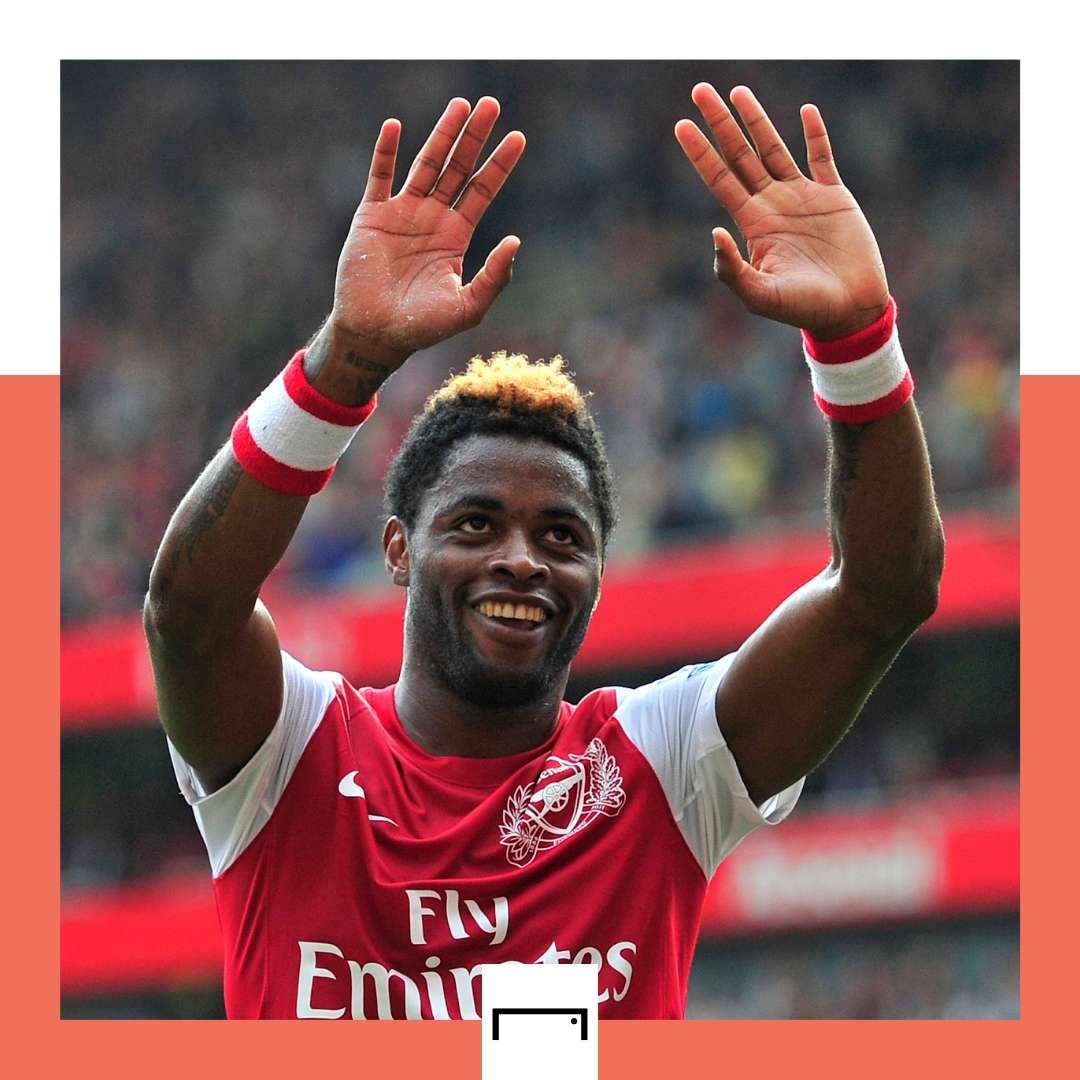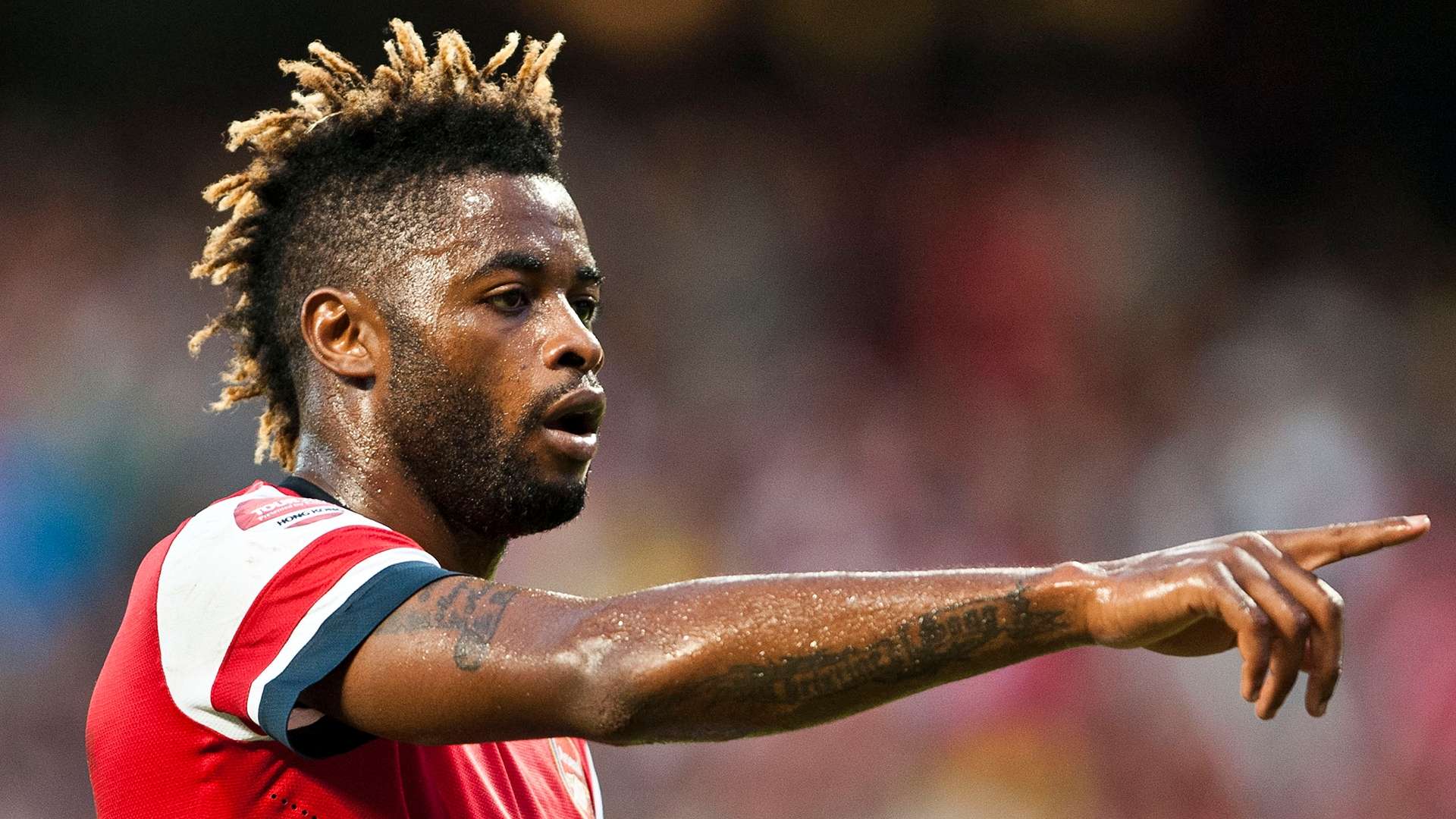A Liga winner with Barcelona and a regular for Arsenal under Arsene Wenger, Alex Song is still playing Champions League football – just now in Africa with Arta Solar.
The midfielder aroused great interest in November 2020 when he signed for the ambitious Djibouti outfit, who also boast several other players who previously plied their trade in Europe, including Carlos Kameni, Diafra Sakho, Dany Nounkeu and Alain Traore.
However, this was not some late-career move designed solely to boost his bank balance before retirement. At 34, Song is a key player for the Djiboutian title holders.
Indeed, he is the Arta Solar captain, and featured in the league in late-December 2021 as he splits his time between his club in east Africa and his family home in the west.
He has several investments in his native Cameroon including a construction company in his home town of Douala, a fashion business named Systeme Tchakap, and a connection with a school in Yaounde.
Song nevertheless found time to play in the CAF Champions League against Kenyan side Tusker in September, as Arta Solar fell at the first hurdle.
After a 1-1 draw in the first leg, they were beaten 3-0 away from home to exit in the first qualifying round.
It was Arta Solar's maiden tie in the Champions League, after the star-studded and expensively assembled side won the Djibouti Premier League for the first time in 2020-21.
The club are backed by Tommy Tayoro Nickoss, an entrepreneur in his early 40s, who has ambitions of making Arta Solar the "PSG of African football".
The son-in-law of the Djibouti president, he built his wealth in the aviation industry in Cote d’Ivoire and has since moved into renewable energy – hence, the presence of 'Solar' in the club's name.
His wealth and ambition drew Song to Djibouti, the latest chapter in a career which has been conducted entirely to the beat of the midfielder's own drum – for better or for worse.
After starting with French club Bastia, Song broke into the first team at 16 before being sold to Arsenal for £1 million ($1.4m) in the summer of 2006.
After a few seasons as a fringe player and a loan spell at Charlton, he enjoyed a breakthrough campaign aged 21 in 2008-09, playing 48 games in all competitions for Wenger's team.
Song would usually play as a holding midfielder, occasionally filling in at centre-back, and while known primarily as a fearsome ball-winner, he could also pick a superb pass and was influential in the attacking third.
He became especially important to Arsenal in 2011 following the sale of Cesc Fabregas to Barcelona, with Wenger entrusting Song with more creative responsibilities.
He was rewarded for his show of faith, as the Cameroonian provided 11 Premier League assists with the Gunners finishing third.
 Getty/GOAL
Getty/GOALSong also had the useful knack of setting up crucial goals at crunch moments, such as late winners for Robin van Persie against Everton and Liverpool in the league, and for Thierry Henry in his emotional second debut for the club against Leeds in the FA Cup.
In the summer of 2012, at the age of 24, it appeared Song was perfectly poised to become an Arsenal club legend – until he agreed to follow in Fabregas' footsteps by making a £15m ($20.6m) move to Barcelona.
Not only did Song have his old team-mate to compete with for a spot in midfield, there was also certain-starter Sergio Busquets, meaning he usually either played in defence or not at all.
Still, Song did play 65 games across two years in Spain, and also won La Liga in 2013. Tellingly, though, he only recorded two assists.
Ultimately, football was far from Song's mind, as he admitted in a 2021 interview that his move to Barcelona was motivated by money rather than minutes.
In an Instagram chat with Toronto Raptors basketball star Pascal Siakam, he said: "Most footballers live beyond their means.
"I was at Arsenal for eight years but only began to earn a good living in the last four. That was because my salary went up a lot – but also because I came to realise what a waster I was.
"During my entire time at Arsenal, I couldn't even save £100,000 ($140,000), while people thought I must be a millionaire.
"When Barcelona offered me a contract, and I saw how much I would earn, I didn't think twice. I felt my wife and children should have comfortable lives once my career is over.
"I met Barca's sporting director, and he told me I would not get to play many games, but I didn't give a f*ck – I knew that now I would become a millionaire."
Song fell out of favour at Camp Nou and, after two inconsistent campaigns on loan at West Ham, he was released to join Russian club Rubin Kazan, where he fared no better.
He also had a tumultuous relationship with the Cameroon national team, after being sent off for punching Mario Mandzukic during a 4-0 group-stage defeat to Croatia at the 2014 World Cup in Brazil.
Song then quit the Indomitable Lions in early-2015 after being left out of the squad for that year's African Cup of Nations, one short of a half-century of senior international caps.
In August 2018, he joined Swiss club Sion, but at the start of the coronavirus pandemic in 2020, he was one of nine players sacked for refusing to take a pay cut.
After nine months out of the game, Arta Solar came calling.
Bringing some former European glamour to the footballing backwater of Djibouti, Song immediately brought a title to Arta Solar, as they beat second-placed AS Port 4-2 to seal the 2021 title with two games left to play.
They are currently top of the table again this campaign, meaning another crack at the CAF Champions League is on the cards.
It seems that there are still a few more chapters to be written in the compelling story of Alex Song's career.
